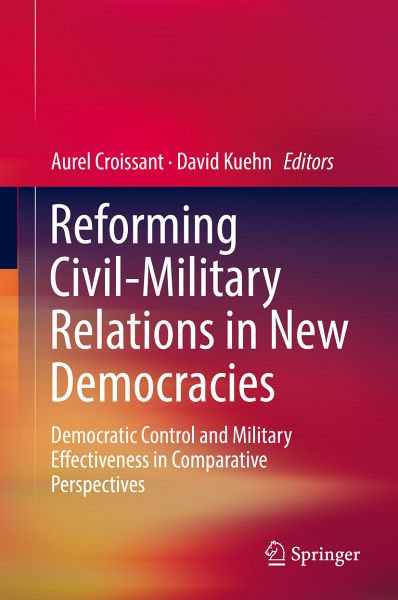
Reforming Civil-Military Relations in New Democracies (eBook, PDF)
Democratic Control and Military Effectiveness in Comparative Perspectives
Redaktion: Croissant, Aurel; Kuehn, David
Versandkostenfrei!
Sofort per Download lieferbar
112,95 €
inkl. MwSt.
Weitere Ausgaben:

PAYBACK Punkte
56 °P sammeln!
This book addresses the challenge of reforming defense and military policy-making in newly democratized nations. By tracing the development of civil-military relations in various new democracies from a comparative perspective, it links two bodies of scholarship that thus far have remained largely separate: the study of emerging (or failed) civilian control over armed forces on the one hand; and work on the roots and causes of military effectiveness to guarantee the protection and security of citizens on the other. The empirical and theoretical findings presented here will appeal to scholars of...
This book addresses the challenge of reforming defense and military policy-making in newly democratized nations. By tracing the development of civil-military relations in various new democracies from a comparative perspective, it links two bodies of scholarship that thus far have remained largely separate: the study of emerging (or failed) civilian control over armed forces on the one hand; and work on the roots and causes of military effectiveness to guarantee the protection and security of citizens on the other. The empirical and theoretical findings presented here will appeal to scholars of civil-military relations, democratization and security issues, as well as to defense policy-makers.
Dieser Download kann aus rechtlichen Gründen nur mit Rechnungsadresse in A, B, BG, CY, CZ, D, DK, EW, E, FIN, F, GR, HR, H, IRL, I, LT, L, LR, M, NL, PL, P, R, S, SLO, SK ausgeliefert werden.












